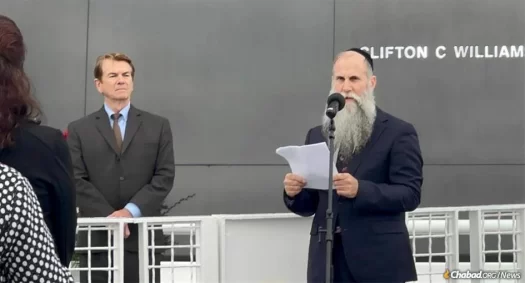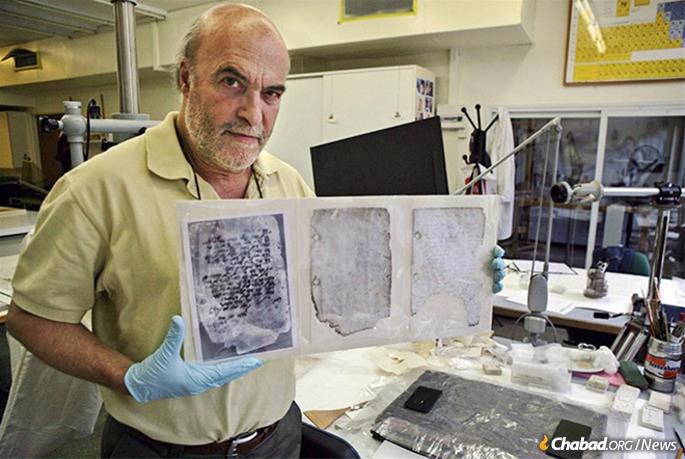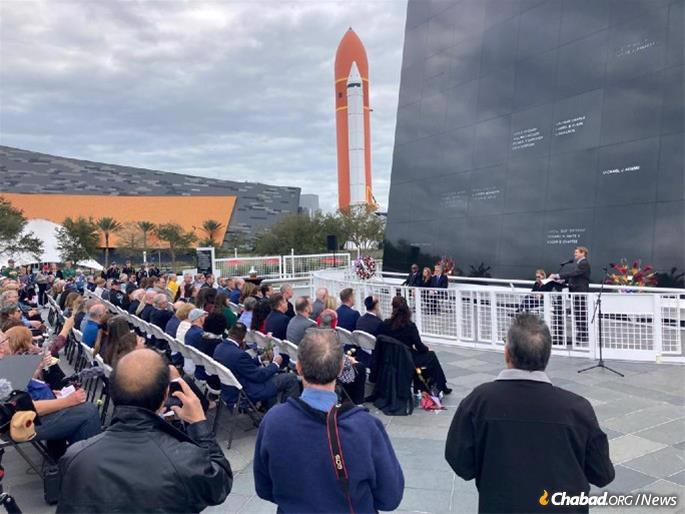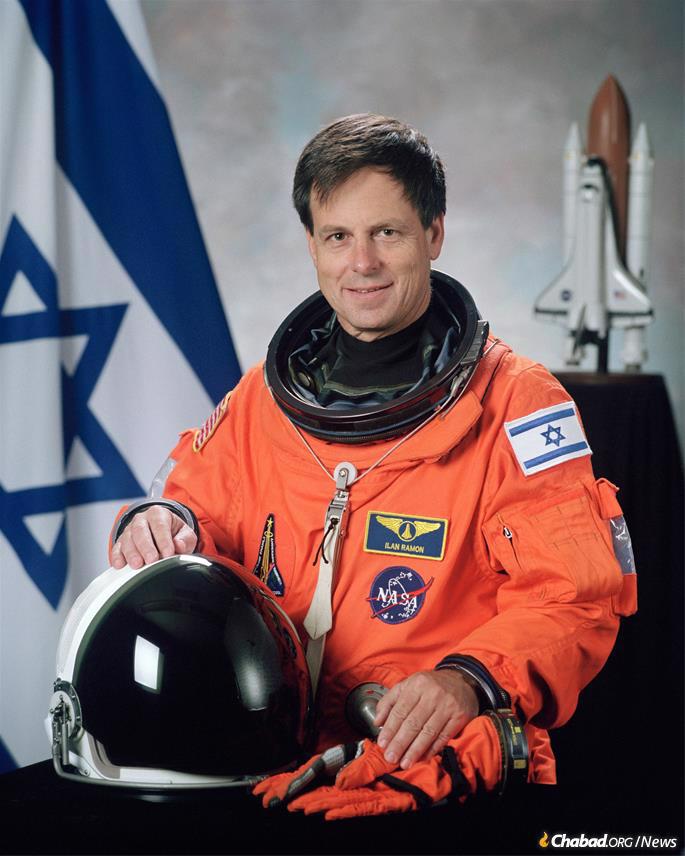
Ilan Ramon’s Rabbi Honors Columbia at Space Center Ceremony
by Mendel Super – chabad.org
Standing alongside NASA officials, astronauts, dignitaries and family members last week, Rabbi Zvi Konikov, co-director of Chabad-Lubavitch of the Space and Treasure Coasts in Central Florida, mourned the tragic losses of the astronauts aboard the Apollo 1, the Challenger and the Columbia, and recalled his personal friendship with Israeli astronaut Ilan Ramon.
In a moving invocation on NASA’s Day of Remembrance, Konikov recalled his relationship with Ramon, who crewed the doomed Columbia on Jan. 16, 2003—20 years ago—and described what he says amounts to Ramon’s legacy. Owing to the complexities surrounding Jewish observance in space, “Ilan challenged me with a question of how and when to mark Shabbat in space,” Konikov told Chabad.org after the ceremony. “His legacy is that no matter how fast you’re going, you need to stop and pause to think about why you’re here on earth.”
“Why are we here on earth?” the rabbi posed during his invocation. “Ilan was not only good at asking questions, but I think he gave us the answer: Part of the reason Ilan wanted to know when the Sabbath begins on the space shuttle was to know precisely when to recite the kiddush, or benediction over his creatively prepared grape-juice container and straw.
“Miraculously—defying rational explanation—fragile pages of Ramon’s personal onboard diary survived, despite the extreme heat of the explosion, the extreme atmospheric cold at 37 miles above the earth, and weeks of rain, mud and insects on the ground. Ilan’s words remained readable. ‘G‑d saw all that he had made and behold, it was very good. Heaven and earth and all their components were thus completed. Remember the Sabbath day to keep it holy.’ A handwritten copy of the Friday-night kiddush prayer was Ilan’s final message to the world.”
Konikov revealed how one of the few possessions that Ramon chose to bring along with him on that fateful flight was a dollar bill from the Rebbe—Rabbi Menachem M. Schneerson, of righteous memory—provided by Konikov. Reminding the rabbi to bring the dollar would be one of the last emails Konikov received from Ramon.

Throughout the years, the rabbi has been a steady presence at the Kennedy Space Center, providing Jewish astronauts with their Jewish needs and a listening ear. Before Passover of 2022, Konikov gave Israeli astronaut Eytan Stibbe, a friend of the late Ilan Ramon, matzah to take with him to the International Space Station. Stibbe also took up several surviving pages from Ramon’s journal.
The rabbi has also kept up a relationship with Ramon’s family in Israel, visiting them often. He helped his son Assaf say Kaddish for his father, and a few years later, was there when he was buried in 2009 after a freak F-16 fighter-jet accident; Konikov also stayed in touch with Ramon’s widow, Rona, and was there when she passed away in 2018.
“Our job in this world is to reveal the latent goodness in everything,” reflected Konikov. “That’s what Ilan taught us with Kiddush—‘Behold, it was very good!’—we need to continue to explore and uncover that good, and that’s what NASA continues to do for the benefit of humankind.”














